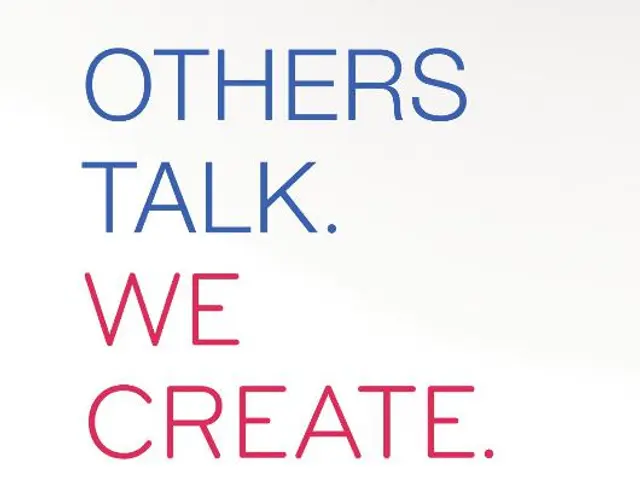Critical Infrastructure Vulnerable as Quantum-Secure Encryption Falls Prey to Emerging Threats
For decades, RSA and Elliptic Curve Cryptography (ECC) have been the cornerstone of digital security, securing online banking, military communications, and more. Their strength primarily stems from the complexity of mathematical problems that are expensive to solve with classical computers. However, the immutable is now being challenged. The emergence of artificial intelligence (AI) poses a growing threat to these cryptographic systems.
Challenges Faced by RSA and ECC
RSA's security relies on the difficulty of factoring large integers, the product of two large prime numbers. Similarly, ECC draws its strength from the hardness of the Elliptic Curve Discrete Logarithm Problem (ECDLP). Although these problems are not typically solvable within a reasonable time frame in classical computing when key sizes are large, the challenge lies in the fact that, to date, no one has discovered a faster method-something AI is beginning to take advantage of.
The Role of AI in Cryptography
Machine learning (ML) has proven effective in recognizing patterns, optimizing search spaces, and iterating on solutions at a faster rate than human coders or analysts. In the realm of cryptography, AI is not cracking codes the way it is depicted in movies. Instead, it delves into the mathematical intricacies upon which RSA and ECC rely, making their "difficult" problems more manageable.
ML models have been instrumental in:
- Identifying weak keys at a faster pace.
- Capitalizing on implementation flaws at scale.
- Enhancing factorization techniques.
- Learning patterns in elliptic curve operations.
The Impact of AI on Factorization
Factorization is RSA's Achilles' heel. Although traditional attacks like the General Number Field Sieve (GNFS) require substantial resources, they are theoretically feasible. AI is now boosting these methods, expediting the process of factoring large integers.
Research explores the utilization of neural networks in predicting the structure of number fields used in factorization. Rather than relying on brute force, AI helps in prioritizing potential paths that are more likely to result in a successful decomposition.
ECC and AI-powered Attacks
ECC is often praised for its higher level of security in comparison to RSA, as it achieves comparable security with smaller key sizes. However, smaller surfaces are also more prone to precision attacks, and AI is seizing the opportunity.
AI is used to:
- Accelerate the Pollard's Rho algorithm, one of the primary tools used to attack ECC.
- Perform side-channel attacks involving models trained on electromagnetic or power consumption data to infer private keys used in ECC operations.
- Analyze arithmetic properties of curves to identify those that are weaker or more susceptible to attack.
Advances in Side-Channel Attacks
Traditionally, side-channel attacks (SCAs) necessitated physical access and high-resolution measurement tools. AI is enabling these attacks to become remote and automated. For example, deep learning models can be trained to classify subtle variations in computation time, power usage, or even acoustic emissions to deduce private keys.
The most significant advancement is that AI does not need to understand the theoretical underpinnings of the system it is assaulting-it merely requires sufficient training data. Once trained, these models can race through cryptographic operations, bypassing mathematical safeguards altogether.
The Synergy of Pre- and Post-Quantum Cryptography
Although quantum computing is considered the real existential threat to RSA and ECC, AI serves as a bridge to quantum advantage. As we await the maturity of quantum machines, AI is making classical attacks more efficient, scalable, and effective. Moreover, some researchers are developing quantum-inspired AI models to emulate the behavior of quantum algorithms (such as Shor's or Grover's) using classical hardware.
In essence, AI is shortening the timespan before these cryptographic schemes become redundant-even before quantum supremacy materializes.
Implications for Security
The threat that AI poses to RSA and ECC should no longer be viewed as a theoretical concern; it is happening now. This shift in the cryptographic landscape is being acknowledged by governments, cybersecurity agencies, and private enterprises. The U.S. National Institute of Standards and Technology (NIST), for one, has been spearheading the global transition towards post-quantum cryptography. After years of research, NIST has finalized a set of quantum-resistant algorithms like CRYSTALS-Kyber and CRYSTALS-Dilithium, designed to withstand both classical and quantum attacks. These algorithms are also being tested to ensure their resilience against AI-assisted cryptanalysis, emphasizing the influence that machine learning is already having on security planning.
In the meantime, organizations relying on RSA or ECC, especially critical infrastructure like power grids or hospitals, are at increased risk. These outdated systems are often embedded in our digital infrastructure, making them attractive targets for attackers seeking to exploit either classical AI-assisted attacks at present or quantum breakthroughs in the future.
The increasing dependence on AI in various aspects of life suggests a rapid shift in the battle between security experts and cyber attackers. To stay ahead, it is crucial for organizations to proactively implement quantum-resistant cryptography, upgrade technology platforms that provide crypto-agility, research AI-resistant cryptographic methods, conduct AI-red teaming, and revisit implementation hygiene to minimize vulnerabilities. In the face of increasingly sophisticated adversaries, the message to critical infrastructure industries is clear: begin thinking like an AI-empowered adversary, as they are poised to be the next threat targeting your data.
- The synergy between AI and quantum computing is posing a significant threat to RSA and Elliptic Curve Cryptography (ECC), as AI is boosting classical attacks, making them more efficient, scalable, and potentially successful.
- Organizations relying on outdated cryptographic systems like RSA or ECC, such as critical infrastructure like power grids or hospitals, are at risk from both classical AI-assisted attacks and future quantum breakthroughs.
- To counter this growing threat, it is crucial for organizations to proactively implement quantum-resistant cryptography, upgrade technology platforms, research AI-resistant cryptographic methods, conduct AI-red teaming, and revisit implementation hygiene to minimize vulnerabilities in the data-and-cloud-computing industry.







